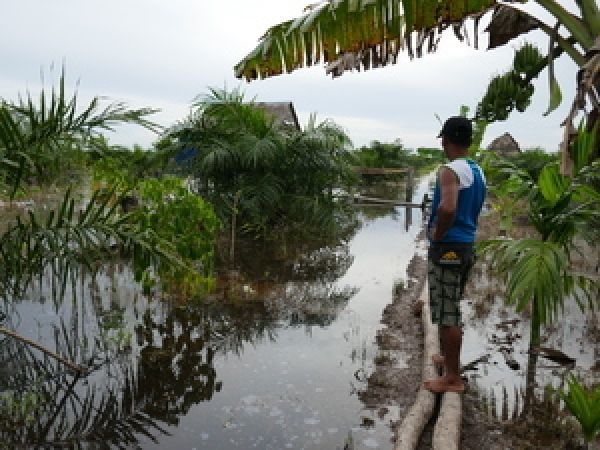While high greenhouse gas emissions and biodiversity loss are often associated with rapid land-use change in Indonesia, impacts on local water cycles have been largely overlooked. Researchers from the University of Göttingen, IPB University in Bogor and BMKG in Jakarta have now published a new study on this issue. They show that the expansion of monocultures, such as oil palm and rubber plantations, leads to more frequent and more severe flooding. The multidisciplinary team explains this increase in flooding with a complex interplay of ecohydrological and social processes, including soil degradation in monocultures, the expansion of oil palm plantations into wetlands, and the construction of flood protection dams. The results have been published in the journal Ecology & Society.
For the study, the authors conducted almost 100 interviews with Indonesian smallholders, people from the village and decision-makers in the Jambi province of Sumatra. They then compared and supplemented their analyses of these results with scientific measurements of precipitation, river and groundwater levels, soil properties as well as land use mapping from the region.
Continue reading at Göttingen University
Image via Göttingen University


